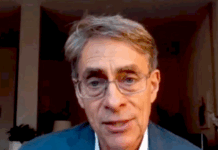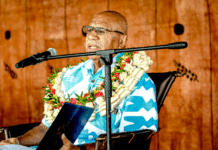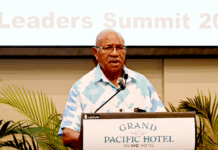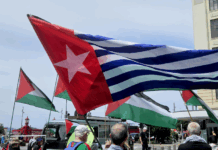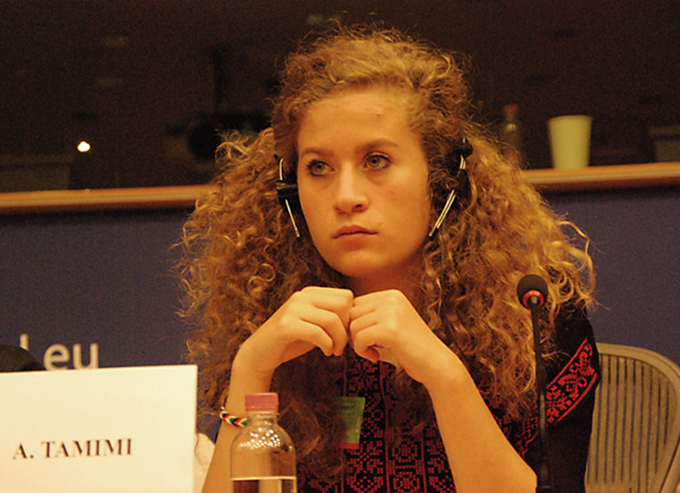
OPINION: By Ariel Gold and Taylor Morley
Sixteen-year-old Ahed Tamimi was back in court last Thursday, with the judge ruling for the third time that her detention be extended – this time for another five days.
Over the past week and a half, Ahed has been shuffled between numerous Israeli prisons and police stations. She has been held in cold isolation cells with cameras pointed at her 24 hours a day.
READ MORE: Palestinian teen first to be killed by Israel in 2018
Repeatedly, without a parent or lawyer present, they have attempted to interrogate her. The reasoning for the judge’s rulings to extend her detention is that she “poses a risk” to the military and the Israeli government’s case against her.
Israel is right that Ahed Tamimi poses a risk. But it isn’t a risk to one of the most heavily armed and advanced militaries in the world or to the legal case being built against her.
The risk she poses is in her refusal to submit to the Israeli demand that Palestinians acquiesce to their own occupation.
Israeli logic is that Palestinians should cooperate with their own oppression. They should move quietly through the checkpoints, open their bags, not look their occupiers in the eye and not challenge or protest the theft of their lands, resources and freedoms.
Israeli logic is that if they don’t like it, they can leave. Actually, they would strongly prefer that Palestinians leave. The strategy is to make life so unbearable for Palestinians, that they leave willingly. This even has a name: “voluntary transfer.”
Regular resistance
Since Ahed was a young child, she and her family have engaged in active resistance to Israel’s occupation. From 2013 up until the present, they have staged regular demonstrations against the military and the nearby settlers who have taken over their lands and water spring.
The protests are met with tear gas, rubber bullets, skunk water and live ammunition.
In 2012, Ahed’s father was declared a prisoner of conscience by Amnesty International. In 2013, her uncle was killed by a tear gas canister shot to the head. In 2014, her mother was almost permanently disabled when she was shot in the leg with a .22 caliber bullet.
In 2015, a video of Ahed preventing her younger brother from being arrested went viral. Her cousins and her older brother have spent time in Israeli prisons.
On Friday, December 15, during a protest of President Trump’s announcement of Jerusalem as the capital of Israel, Ahed’s 14-year-old cousin Mohammed Tamimi was shot in the face with a rubber bullet. He was taken to the hospital where he required surgery and a was placed in a medically induced coma.
A few hours later, when armed soldiers came to Ahed’s home demanding to enter, she pushed back. She slapped and kicked them, and screamed that they could not come in.
Shenila Khoja-Moolji wrote in Aljazeera about the stark contrast between the support Malala Yousafzai received after being shot in the head by the Taliban and the silence on Ahed’s case by feminist and political leaders.
Big difference
Granted, there is a big difference between being shot on the way to school and arrested after slapping a soldier.
Malala was invited to meet with President Barack Obama. She was championed by Senator Hillary Clinton and listed as one of the 100 most influential people in Time magazine.
In 2013 and 2014, Malala was nominated for the Nobel Peace Prize and in 2014, she won. In contrast, while Ahed’s story has received some coverage in the news, she has yet to find state actors or prominent influencers to champion her cause.
While the West seems mostly indifferent to Ahed’s plight, Israel is hell-bent on hating the girl.
Israeli Education Minister Neftali Bennett called for Ahed and her family to “spend the rest of their lives in prison.”
Minister of Defence Avigdor Liberman said she and her family should “get what they deserve,” and prominent Israeli journalist Ben Caspit said that Israel should “exact a price at some other opportunity, in the dark, without witnesses and cameras”.
Caspit afterwards tried to backpedal his threat, saying his words had been taken out of context. But as the #MeToo movement has made clear, denying one’s intentions does not undo or excuse them.
Marginalised voices
As the #MeToo movement continues to build and uplift more marginalised voices, Ahed’s voice is not recognised when she could be regarded as a pillar in the movement.
Ahed is revoking her consent for Israel’s brutal occupation. She refuses to give her consent to Israeli forces that invade her family’s home in yet another vicious, meritless night raid. She confronts her aggressors and stands up to the violent system of power that keeps perpetuating this cycle of abuse against Palestinians.
In the same way survivors of sexual assault and rape are silenced, doubted and blamed for the crimes committed against them, Ahed is facing the same backlash from her aggressors.
Israel is working overtime to discredit her and erase her voice, with the hope that people will believe their fabrications over her truth. Now is the time for voices in the #MeToo to call for her release and help draw the parallels.
Shenila Khoja-Moolji explains the reasons for such lack of support for Ahed as being due to acceptance of state violence, Western society’s selective humanitarianism and the political, rather than individual nature of Ahed’s feminism.
These are all valid and important explanations. But support for Ahed is also a condemnation of the state of Israel. It is a condemnation of Israel’s military court system which allows children to be held in isolation and denied access to their parents during interrogation.
It is a condemnation of Israel’s settlement enterprise and continued presence on Palestinian land. To support Ahed is to rebuke Israel’s assertion that Palestinians must comply with their occupiers, that they must open the doors for the soldiers who enter their homes.
Internal power
Certainly their 16-year-old girls must not raise an arm to soldiers. It is one thing to support Malala for taking on the Taliban, but quite another to support Ahed as she takes on Israel’s strongest allies and the purported only democracy in the Middle East.
Not all feminist leaders are afraid to express support for Ahed. CodePink is hosting a petition to Israeli Prime Minister Benjamin Netanyahu, demanding Ahed’s release. We, along with others, like Jewish Voice for Peace, are asking Members of Congress to sign onto Representative Betty McCollum’s legislation to require that US aid to Israel not go to the abuse and detention of Palestinian children.
Ahed is a threat to Israel’s entire system of power. She is not only aware of her own internal power, she is completely unafraid of her aggressors.
This is the same bravery required for sexual assault survivors to tell their stories and hold their accusers responsible. It is the essence of the struggle for women’s rights and why feminism is so incompatible with militarism.
For Ahed to be successful in her fight for the liberation of her people, we first need her to be released from jail. To make this happen, we need all people who call themselves feminists and human rights advocates to say #FreeAhed.





